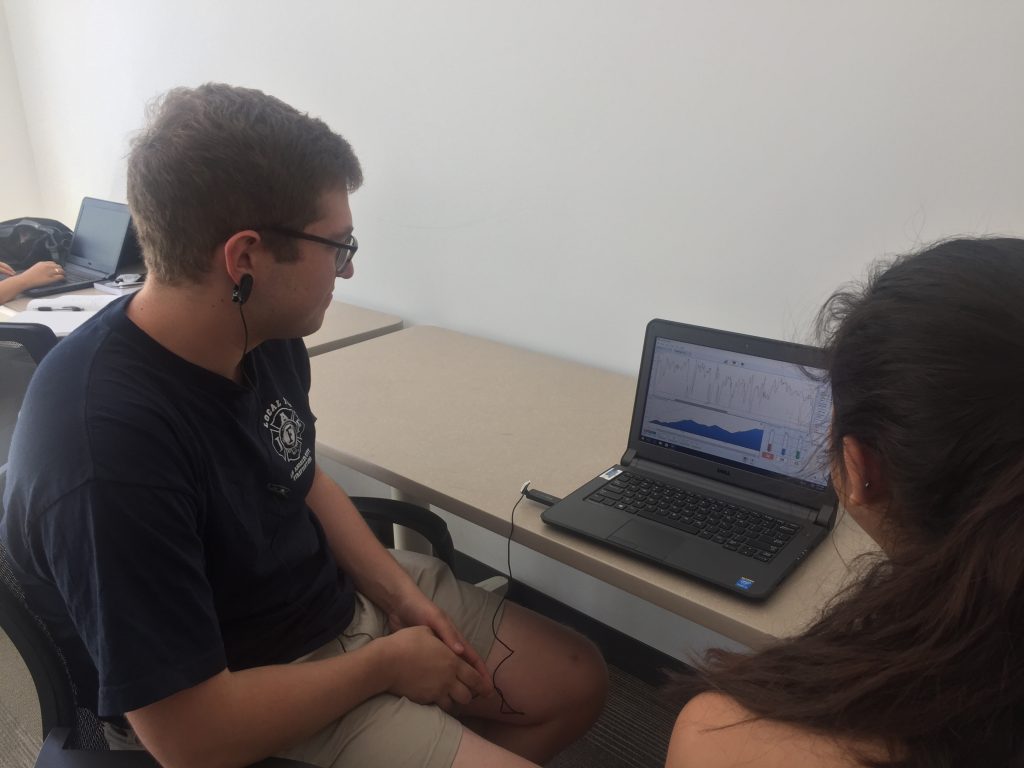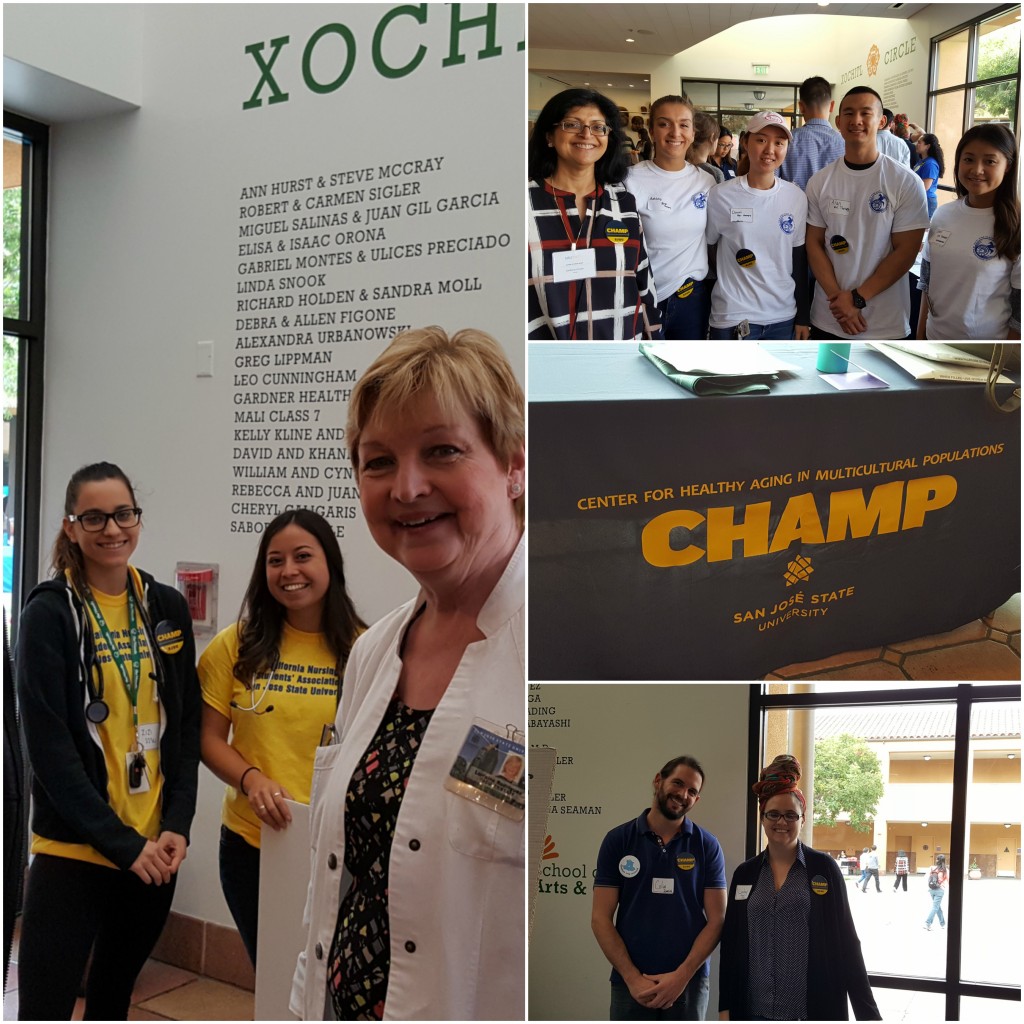
Do you have test anxiety? Worry about the outcomes of your current project? What about the stress of figuring out your career pathway? If you are just stressed about the rigors of college life or life in general, you may want to visit the “Stress-Less Tech Lab” at San José State University’s 1st floor of the Wellness Center.
“We are celebrating the first academic year of our Lab where students help students by facilitating biofeedback computer games designed to reduce feelings of stress and anxiety,” says Dr. Susan Ross, Assistant Professor and Director of Recreation Therapy and Complementary and Alternative Health Practices in the Health Science and Recreation Department, San José State University.
Students that work in the Stress-Less Tech Lab are enrolled in the RECL 148 class, Principles of Biofeedback. They attend class twice a week and gain invaluable experience during Lab hours of Wednesdays, 10:00 a.m. to 2:00 p.m and Thursdays noon to 4:00 p.m.
Biofeedback is a health-improvement intervention in which patrons learn to control (self-regulate) his or her body’s functions, such as the heart or respiration rate, by seeing signals from his or her body displayed on a computer display. Physical Therapists use biofeedback to help patients regain strength and movement in dysfunctional muscles. Recreation Therapists use it to treat clients with various physical conditions such as pain or migraine headaches or mental health disorders such as depression and anxiety.
“Biofeedback is a real time activity that measures the body’s stress response,” says Dr. Ross. In the first session students who visit the lab will see how their stressful thoughts immediately affect their biorhythms and how simple breathing techniques will cause improved inner harmony. Ross adds, “Randomized controlled trials have shown college students can decrease anxiety in as few as 5 training sessions.”
When clients enter the Biofeedback Lab they are immediately fitted with an ear piece that calibrates their heart rate. The Stress-Less Tech Lab utilizes HeartMath software that is also used at Stanford, Kaiser, Boeing, U.S. Department of Veteran Affairs, NASA and more. By measuring heart and pulse rate, the software program is able to determine the stress level of the individual.
“We can look at the data on the computer screen and determine your emotional and physical state by analyzing your heart rate variability.” Poor heart rate variability is a predictor of numerous medical conditions and psychosocial disorders such as depression, panic disorder, fatigue, hypertension, diabetes mellitus, ischemic heart disease, coronary heart disease (predicts sudden cardiac death), congestive heart failure, hypertension, weight gain and alcoholism.
Sessions generally take about 30 minutes. Student workers first obtain a baseline of two minutes of normal breathing. Then a client’s stress response is recorded to gauge the clients’ psychophysiological response to stressors. Student workers teach peer clients a 6-Breaths breathing technique that involves slow and deep breathing, six in one minute, to induce an initial physiologically coherent state. Then student workers assess, debrief, and educate. Depending on the need of the student patron, the worker may lead the client through other basic breathing techniques such as a ball moving in a smooth sine wave. Other clients might play a computer game designed to change physiology and emotions from stress to peacefulness. Student experiences are debriefed and then there is closure.
“Other randomized controlled studies have shown that biofeedback can help students improve in their ability to pay attention, which means a great deal if they want to read textbooks, write papers, or listen to important lectures” says Dr. Ross. “Most of us carry some level of anxiety due to the many demands of daily life. In fact, the Stress-Less Tech Lab is open to not only students but faculty and staff as well.”
SJSU’s Stress-Less Tech Lab is the third lab of this type in the country. The other two can be found in the Recreation Therapy Department at East Carolina University and at University of North Carolina’s Chapel Hill Recreation Therapy Department. “We are so fortunate to have participation from nursing, kinesiology, psychology and nutrition classes yet we are still SJSU’s best kept secret.”











